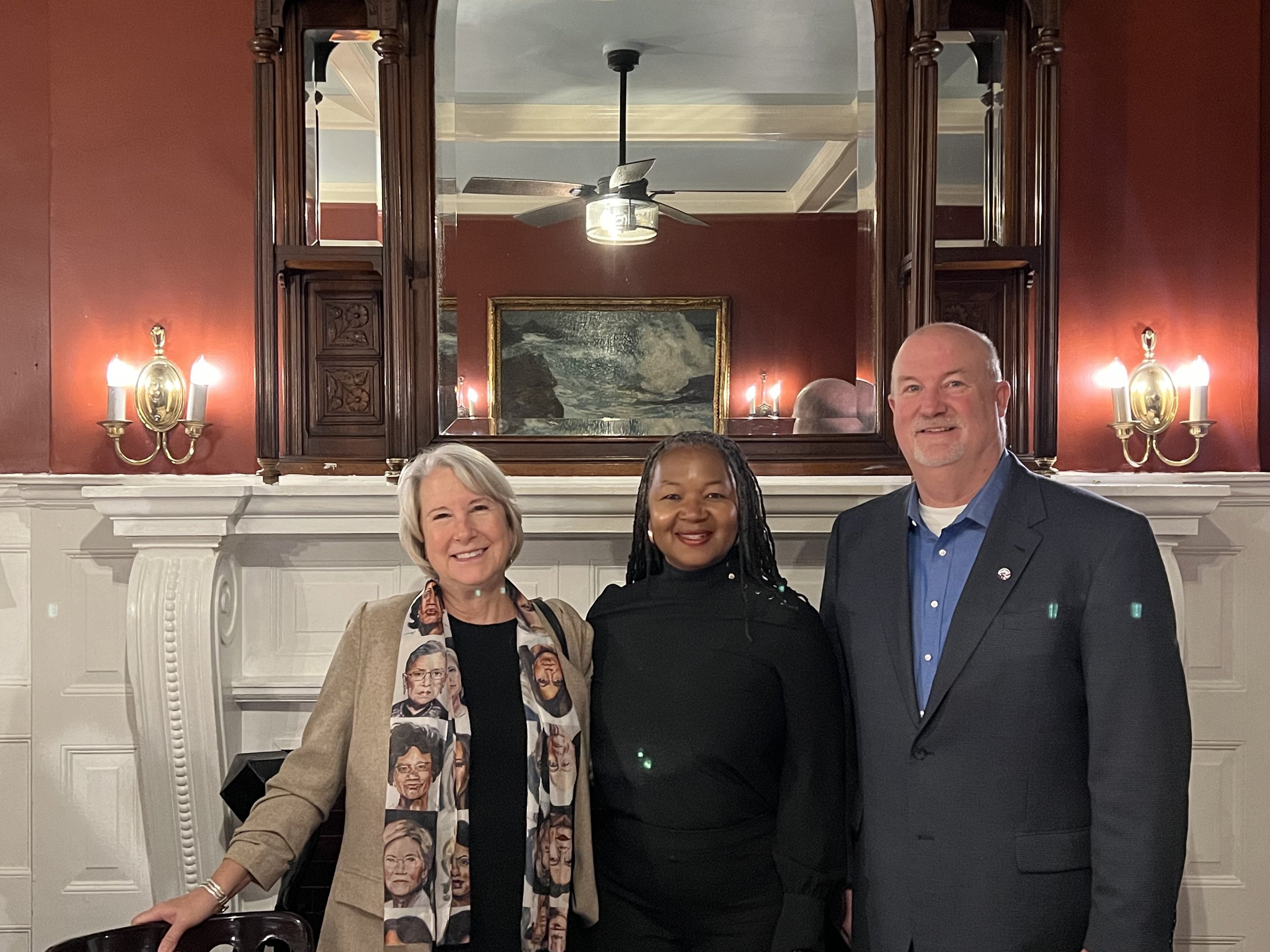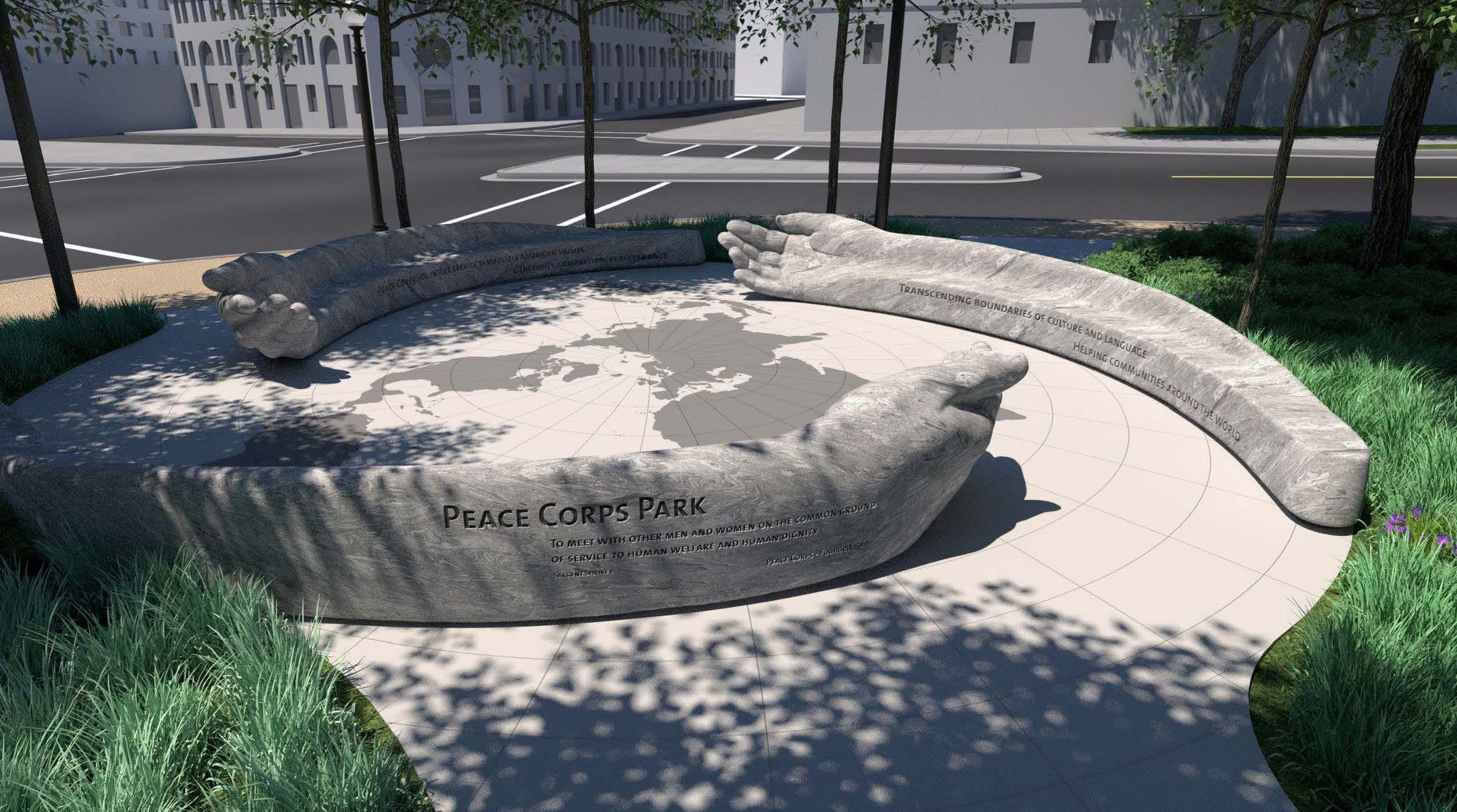From left to right: Sara Brenner, Executive Director, Jewish Community Foundation of Greater Washington, Habib Bako, Founder of Aligned Minds, LLC, and Tonia Wellons, President & CEO, Greater Washington Community Foundation
This post is written by Habib Bako, founder of Aligned Minds, LLC, a strategic community engagement firm. Habib is leading the design and implementation of a new initiative launched by The Community Foundation and our partners from the Jewish Community Foundation at The Jewish Federation of Greater Washington that aims to build a faith-inspired community through building trust, bridging difference, and strengthening democracy throughout the region.
By Habib Bako
In February, I was honored to facilitate a remarkable event to launch a new project called In Solidarity: Trust, Truth, and Transformation. In Solidarity – led by the Greater Washington Community Foundation and the Jewish Community Foundation – seeks to build the capacity and skills of people from multiple faiths, religious, racial, and ethnic groups across the DMV
The aim of this initiative is to bring faith-inspired leaders together to bridge across difference, forge deeper relationships, and come together across shared purpose and values in order to ultimately strengthen our democracy and advance equitable outcomes in the Greater Washington region. But in this February meeting, it was clear people also sought to create a space to ground in their shared humanity, to hold their anxieties about the current state of our region and country, and to get inspired by stories of hope and resilience from leaders past and present.
Having worked in community engagement spaces in cities across the country, I understand the importance of building that space to hold people’s experiences and anxieties. But what is unique and special about this time around is that this community is in the DMV, a place I’ve called home for most of my life.
In this February In Solidarity launch event, we called on leaders to consider Martin Luther King’s question and title of his 1967 book, “Where do we go from here: chaos or community?” It’s the timeless question we could have asked at every moment of national upheaval and pain. This moment, right here in 2025, is no different. Throughout the launch event, it was clear that people needed time to be with one another. In the opening of the event, we asked participants to share the values that brought them to that event. They brought in the values of: love, community, determination, resilience, and resistance. That energy was clear throughout.
As principal leaders of the two partner organizations, Tonia Wellons and Sara Brenner really set the tone for the evening with their introduction. They talked about their relationship with one another and why that relationship models the types of trust, truth, and transformation that In Solidarity hopes to elevate and accelerate through this initiative. Their work led them to intentionally choose partnership and abundance for the two community foundations over scarcity and competition for resources. They began having difficult conversations on race, religion, and the divides that often show up in our communities, and what began to bubble up was a relational bend to the philanthropy they saw their donors practicing often anchored in their communities of origin, and their ethnic and religious ties. Sara and Tonia quickly realized that these relationships were the common ground that could move their communities forward.
We also heard from two DMV leaders who are living In Solidarity through their everyday work. Reverend William H. Lamar IV, the pastor of the Metropolitan African Methodist Episcopal Church in Washington, moved the crowd by imploring them to not “shrink from the blood demand of our ancestors.” He shared the remarkable story of winning ownership of the Proud Boys trademark in court and using that power to turn evil into good. While it has brought an onslaught of threats to his congregation, he stands by the decision to pursue the lawsuit. He told the participants that it was our time to fight against the division and hate that permeates our culture. And he reminded us that the fight was not done in the name of anger, but in the name of love – the practice of love.
Our next speaker was Diana Aviv, founder and principal of ourCovenant, an organization that builds and deepens partnerships within communities of faith in support of democracy. A community leader and native of South Africa, she grew up where racism was the law of the land, acutely aware of the privilege her skin color afforded her under apartheid. Having Diana at this event was a personal delight for me as I worked for her more than a decade ago. Diana spoke about her deep faith in the goodness of people to solve their own problems. She noted it is within American civil society – the thousands of nonprofit organizations and the millions of people who are employed by and volunteer with them – where that kind of hope and determination to solve our own problems can be found. “Nothing worthwhile is ever easy,” she said. “The biggest mistake is to wait until [the threat] passes and assume things will get better. We have to take action now. Civil society is the glue that holds us all together. Progress happens when civil society is strong and democracy functions.”
The event then turned to the participants, where the most valuable interactions took place among the people in the room and in discussion about how In Solidarity can continue to be a place for choosing community over chaos. The themes that came out in the read-outs from the tables presented several opportunities to design and grow this work. The challenges to our communities right now are immense, but the opportunities are attainable and achievable.
In the end, the words that people used to check out of the In Solidarity gathering made it clear that people were ready to put in the mental, physical, and spiritual energy and time toward this goal of choosing community and being in solidarity with one another.
This is just the beginning of this initiative and I look forward to sharing more about it as we build it together over the next two year. Here’s to being In Solidarity with you all.
If you are interested in learning more or getting involved, you can reach me at [email protected]













